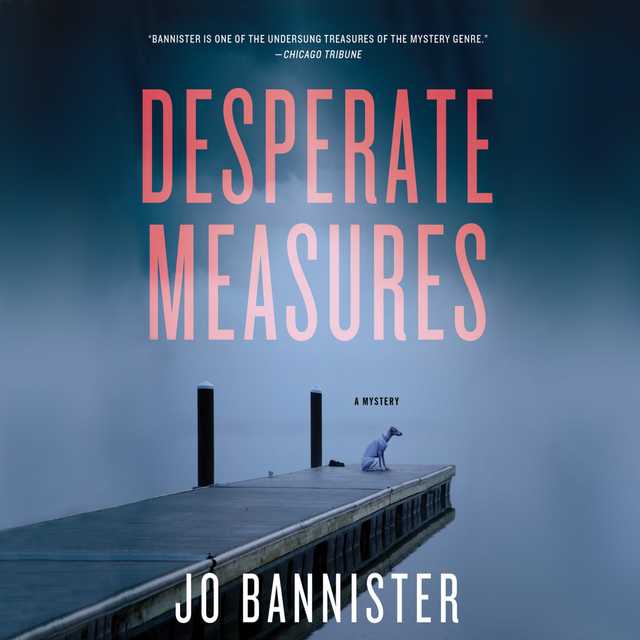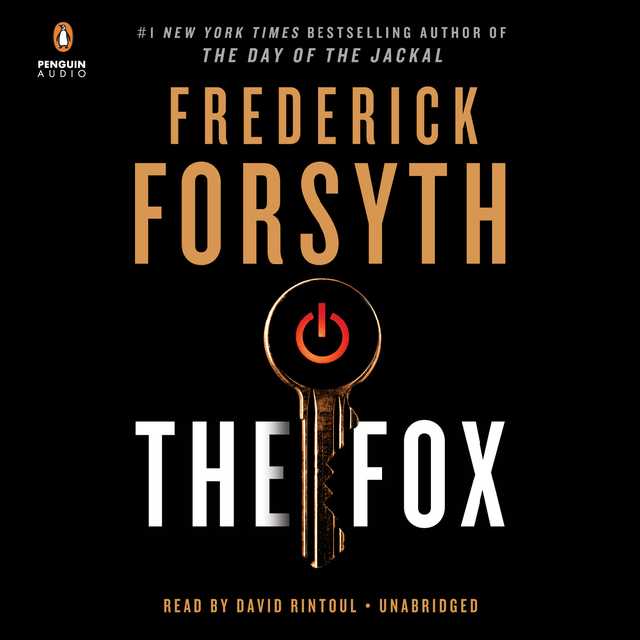PARIS TROUT Audiobook Narrator
Charles S. Dutton is the narrator of PARIS TROUT audiobook that was written by Pete Dexter
Pete Dexter is the author of the National Book Award-winning novel Paris Trout and five other novels: God’s Pocket, Deadwood, Brotherly Love, The Paperboy, and Train. He has been a columnist for the Philadelphia Daily News and the Sacramento Bee, and has contributed to many magazines, including Esquire, Sports Illustrated, and Playboy. His screenplays include Rush and Mulholland Falls. Dexter was born in Michigan and raised in Georgia, Illinois, and eastern South Dakota. He lives on an island off the coast of Washington.
Rob Fleder was executive editor of Sports Illustrated and the editor of SI Books during his twenty years at Time Inc. He was the editor of Sports Illustrated 50th Anniversary Book, Sports Illustrated: The Baseball Book, Sports Illustrated: The Football Book, and Hate Mail from Cheerleaders, among other New York Times bestsellers.
About the Author(s) of PARIS TROUT
Pete Dexter is the author of PARIS TROUT
More From the Same
- Author : Pete Dexter
- Spooner
- The Paperboy
- BROTHERLY LOVE
- Train
- God’s Pocket
- Publisher : HarperAudio
- Abraham
- American Gods [TV Tie-In]
- Dead Ringer
- House of Sand and Fog
- Prey
PARIS TROUT Full Details
| Narrator | Charles S. Dutton |
| Length | 2 hours 58 minutes |
| Author | Pete Dexter |
| Category | |
| Publisher | HarperAudio |
| Release date | March 06, 2007 |
| ISBN | 9780061287350 |
Additional info
The publisher of the PARIS TROUT is HarperAudio. The imprint is HarperAudio. It is supplied by HarperAudio. The ISBN-13 is 9780061287350.
Global Availability
This book is only available in the United States.
Goodreads Reviews
J.
January 12, 2016
The writers I enjoy most are men of few words. So much can be said with so little when done right and it's a testament to the mastery of the written word when an author achieves this. Like Cormac McCarthy, Pete Dexter's prose has just as much to do with what is left unsaid, as with what has been spoken. Both men have an acute sense of southern darkness and weave worlds out of flesh, bone, and bleak realities. Never a word wasted, this novel is a lean and fast read. 'Paris Trout' is a story from more than a half century ago, and takes place in a part of the world that was dragged into the future kicking and screaming. Georgia in the middle of the 20th century was particularly cruel outside of white male dominion. The kind of inhumane trespasses and general treatment of black people was shocking and upsetting, and more importantly, it wasn't actually that long ago either... Paris Trout, the main character, is a man from another time too, a time where overt racism was commonplace, celebrated, and often deadly. He cannot adapt with the changing times, does not abide by updated laws that now protect people equally regardless of skin color. He meets this new world with righteous indignation and increasing hostility. Soon, Paris is lashing out at anyone he perceives as weaker, and is shocked when he discovers he can't kill a minority as freely as he once thought.'Paris Trout' is the story of one person's slow descent into madness, an insolent and hateful man being told he can no longer conduct business in the manner he has known his whole life. His defense lawyer and wife are the two people who bare witness to his increasing insanity as he fights a changing world that won't tolerate the likes of him much longer. This is a disturbing tale told by a master storyteller. It will get under your skin, regardless of color. By the end it will leave you feeling like you've chewed long and hard on a particularly rotten piece of America's history.It's very hard to swallow. And very necessary to digest.
Fabian
September 09, 2020
What does the name evoke? (It is definitely not at all whatever your mind conjours forth.) Glamour; no less luxury--the poshest of all European capitals--Paris of France that is. & a trout is a despicably delicious foodstuff, but slimy member of the undertow no less. It's positively an oxymoron! Like tasteful trash. Artistic porn.But as a novel, boy does it deliver the goods. "Paris Trout" is one of those train, beach, bus reads... oh, for days!The 2 most memorable, iconic, horrorshow events in the book are the inciting death of the 14 year old girl. Grizzly, awful, in-your- face. The realism hooks you in for the ride. The second is the eponymous character himself; one to position himself next to Hannibal Lecter in his lonebshark attack stance. He will kill you and he'll get away with it, but with ignorance as the man's weapon (which may be scarier, I think). The sequence leading to the end feels disjointed, almost betraying the reader-writer relationship earned so naturally from page two or three.And, well, the point in which the novel ends feels like a validation to the White Privilege we all wish to escape, bare witness everyday. Nepotism. Racism. Sexism. Deep shit.It's a true tragedy that after the court scene the novel never returns to its initial terror and raw artistic fervor.
Lawyer
February 06, 2018
Paris Trout: Slipping Into Darkness Paris Trout by Pete Dexter was chosen as a group read by members of On the Southern Literary Trail for February, 2018. This novel received the National Book Award for 1988. “Just as there are physical monsters, can there not be mental or psychic monsters born? The face and body may be perfect, but if a twisted gene or malformed egg can produce physical monsters, may not the same process produce a malformed soul? Monsters are variations from the accepted normal to a greater or a less degree. As a child may be born without an arm, so one may be born without kindness or the potential of conscience. A man who loses his arms in an accident has a great struggle to adjust himself to the lack, but one born without arms suffers only from people who find him strange. Having never had arms, he cannot miss them. To a monster the norm must seem monstrous, since everyone is normal to himself. To the inner monster it must be even more obscure, since he has no visible thing to compare with others. To a criminal, honesty is foolish. You must not forget that a monster is only a variation, and that to a monster the norm is monstrous. ―John Steinbeck, East of Eden, Chapter Eight (1952)I first read Paris Trout in the Fall of 1989. I had been an Assistant District Attorney for over ten years. I had come to believe in monsters as Steinbeck described them. I came to know them. Try them for their inhumane crimes against the weak. The young, the old, the unprotected innocents of my home town and County in Alabama. It was a time I struggled to convince juries that such unspeakable acts were common place in their community. For it is natural that men and women would prefer to think that such things happen. To admit it was to acknowledge that they, too could also be savaged. In closing argument in trials of the most horrendous crimes, I often quoted what Steinbeck wrote of Cathy Ames in East of Eden.So I was not surprised at the violence of Peter Dexter's novel. I had met Paris Trout. More than once. And I would meet him many more times before I retired from the District Attorney's Office after almost twenty-eight years to become the Director of a Domestic Violence and Sexual Assault program providing services to victims of those crimes. And I would continue to meet the Paris Trouts of my community for almost another four years when I resigned. I had had enough. I thought.It would take two years of private practice, largely spent as the Guardian ad Litem for children in the Juvenile and Family Courts before I would throw in the towel. And even then, it was not wanting to quit, but to care for my Mother in her final illness. After her death, I chose not to return to the practice of law. Just as the words of John Steinbeck describing the potential of human evil have remained with me, so has this novel. Paris Trout. It's message is much the same as East of Eden. Evil exists. It happens. We choose to be good and refrain from evil. Or not.Peter Dexter brings us to the world of Ether County, Georgia, during the height of the summer's heat. There is a rabies epidemic surrounding the little county seat, Cotton Point. Although it might have been during the dog days of late summer, it is not dogs that carry the disease, but foxes. One bites twelve year old Rosie Sayers on her way home to the "Bottoms." That area that is relegated to the black members of the community. She was returning from Paris Trout's store after purchasing some .22 Caliber bullets for one of her mother's male visitors when she was bitten. She feels poisoned by the fox's bite.But Rosie will not die of Rabies. She will not be provided enough time for us to know whether she contracted the disease. Paris Trout will kill her, shooting her multiple times, as his henchman Buddy Devonne guns down Mary McNutt whose house Trout has come to collect a debt on the sale of a rattle trap car sold to Tommy Ray who lives at the same house, but not present when Trout comes to call. He has run from the house when he sees Trout approaching.Trout's business primarily caters to the black community. Of course, Trout does not use polite language to describe the greatest number of his customers. Trout charges them excessive prices. Charges interest on credit extended. His is an usurious practice. Not an uncommon practice. It occurred through more than one Southern state, resulting in the passage of Usury laws that capped the interest rate a money lender could charge.But the old days have begun to change in Cotton Point, Georgia. Ward Townes, the County Solicitor, charges Paris Trout with the murder of Rosie and the attempted murder of Mary McNutt who still carries four bullets in her body following the attack on her. Dexter spins a tale of classic Southern Gothic Literature.Harry Seagraves, one of the town's lawyers, considered among the best in his profession, will defend Paris Trout. A decision he comes to regret. For Trout is one of those clients who is every lawyer's nightmare. The client who will not listen to advice, the client who constantly reminds Counsel what he has paid for.As Trout's trial approaches, Dexter reveals Trout's penchant for violence. Trout dominates, controls, and abuses his wife Hannah, a former school teacher. Trout in exercising his control over his wife performs an act of sexual torture upon her. The act is not for Trout's sexual gratification. Sex offenses rarely are about sex, but the exercise of power, the need to control another human being, to humiliate them, turning them into women incapable of resisting or leaving the relationship with their abuser.Hannah Trout emerges as a complex character in Dexter's novel. She will not abide Trout's crimes further, but relentlessly pursues a divorce from him. She seeks Harry Seagrave to represent her. However, professional ethics do not allow him to take her case as he represents Trout. He refers her to a younger lawyer, Carl Bonner to handle the divorce. Bonner is also an intricate character, burdened with the reputation of having been the youngest Eagle Scout to have lived in the State of Georgia. It is a reputation that will influence his pushing Paris Trout to dangerous limits, though Seagraves cautions him that there are matters that should not be pushed to far, or too hard.Seagraves further complicates the question of how Paris Trout is to be dealt with by becoming involved in a relationship with Hannah. She is a passionate lover loosened from her bond to Trout.As the novel hurtles to its conclusion, Peter Dexter rachets up scene after scene of unintended consequences and mistakes by the townspeople that lead to Trout's descent into paranoia, and a desire for revenge against all those whom he thinks have betrayed him.There can be no reasonable resolution to this novel. Dexter's prose is lean, taut. Propelling this novel with a hurtling speed.This is an exceptional novel of life in a small Southern town in the late 1940s to mid 1950s. Where blatant racists such as Paris Trout live and the townspeople practice a more subtle form of racism, looking away at injustice, and failing to face the reality of what a man like Paris Trout is capable of doing. More than one leading citizen will pay the price.Paris Trout is not a novel for all readers. The depiction of violence and domestic abuse are horrific. It is more than some readers can handle. After all, every reader is not a prosecutor, lawyer, judge, or law enforcement officer who face these realities on almost, if not, a daily basis. But never forget. "[A] monster is only a variation, and that to a monster the norm is monstrous."Highly recommended.
Paul
January 31, 2012
So much better than Paris Hilton.But not quite as good as Paris France - it would be an unfair comparison.As for Paris Texas, yeah, better than the film, which I thought had a nice soundtrack but was a leetle bit on the wanky side, as many European-auteurs-in-America turn out to be.I could also say - not as thrillingly weird as Trout Mask Replica. But loads better than a trout. Comparisons are invidious, but I thought these were pretty vidious.
LA Cantrell
February 02, 2018
He is a horrible, horrible man that shoots an unarmed woman and a little girl multiple times. But because he feels outraged at a debt unpaid and because these are just colored folk - family members to the man who Paris Trout is angry with - he feels no remorse. It is 1949 in small town Georgia, and Paris fully expects to get away with murder.When he is stunned to learn that he will be tried in court, it begins to dawn on him that the old days are gone. He is furious and now without freedom to subjugate the blacks to whom he acts as a loan shark, he begins to instead brutally abuse his wife. He is intentionally drawn as monstrous because what he represents in our country's history is beyond merely ugly.Paris Trout's mind begins to further unravel. As the town is about to celebrate its sesquicentennial - its history - he finally realizes that the past is about to be gone. He decides to cut himself away from it.What I've loved about Dexter's writing since first sampling it 30 years ago is his subtle irony. The little girl Rosie who is shot by Paris Trout had been bitten by a fox on her way home from buying bullets at Trout's general store. 11 out of the 70 foxes killed that summer showed that rabies was running rampant, and young Rosie feared she was 'poisoned.' Her mother gave her away because she thought the girl was poisoned too. And yet, it wasn't Rosie who went mad.Paris Trout later avows that he is poisoned but isn't talking about that fox or even about rabies. But as he ultimately cuts himself off from the past of this little Georgia backwater, he puts to death the shambling and slobbering madness that is hatred based on race. And not a minute too soon. That Dexter got the idea for this story from a real case (he heard the shots as a boy) tells us that this book is an expose of ugliness. Dexter says: ''This could have happened anywhere. The South has no lock on violence. In fact, South Philadelphia is more violent than the South.'' The title Paris Trout might instead have been Hatred - something to note and be wary of.Still 5 stars and still a favorite. You have to look hard and careful with Dexter's work. So worth it!
Tara
September 11, 2020
Paris Trout is the most replusive character that I have ever encountered. It was difficult not to become emotionally involved in this sombering story - I wanted to shoot the s.o.b. and shove a baseball bat, barrel first, up his arse - I loved it and would highly recommend.
John
February 24, 2018
In Pete Dexter's award-winning tour de force set in the fictional Cotton Point, Georgia, Paris Trout, an unapologetic racist, commits a violent act at the novel's beginning. The remainder of the novel presents how this single act impacts the town and Trout himself.The novel is divided in nine sections changing character's perspectives in each one. The primary characters in this novel are developed well, portraying each one's strengths and weaknesses. The setting was described so well that you could easily imagine the small post-WW II town. The plot never bogged down progressively moving the reader along to the climatic ending. The author's depiction of Trout's paranoia were tragically comic. The reader should be warned that some of the acts of violence are so descriptive that you can't help cringing when you read them. This novel was translated into a movie starring Dennis Hopper, Ed Harris and Barbara Hersey. I will need to watch it and see how close my imagination is to the novel.
Gavin
January 15, 2021
PARIS TROUT (1988; Dt. 2008) ist ein trauriges Buch. Traurig und bitter. Es beginnt mit dem Biss eines Fuchses in den Knöchel eines schwarzen Mädchens und endet mit dem sinnlosen Töten dreier Menschen. Dazwischen wird der Leser Zeuge eines leisen Südstaatendramas, das sich aus alltäglichem Rassismus, Menschenfeindlichkeit, Egomanie und Desinteresse, bzw. Ignoranz speist. Man bleibt zurück mit einem gewaltigen Kloß im Hals, der sich nur langsam wieder lockert.In der Kleinstadt Cotton Point lebt Mitte der 50er Jahre die schwarze Gemeinde leidlich friedlich abseits der weißen. Es gibt wenig Berührungspunkte untereinander, die Schwarzen arbeiten für die Weißen, so scheint das immer schon gewesen zu sein. Die pubertierende Rosie Sayers wird von einem wohl tollwütigen Fuchs gebissen, will dies jedoch vor ihrer Mutter unbedingt geheim halten, da ihre Mutter sie nicht mag und Rosie Angst hat, fortgeschickt zu werden. Sie kommt blutend in den Laden von Paris Trout, einem örtlichen Gemischtwarenhändler, der darüber hinaus auch ein florierendes Geschäft mit Darlehen v.a. an mittellose Schwarze betreibt. Seine Frau Hanna sieht, daß die Kleine verletzt ist und bringt sie in ein Krankenhaus, in dem der diensttuende Arzt Rosie derart Angst vor einer Spritze macht, daß diese angibt, es sei doch kein Fuchs, sondern ein Hund gewesen. Damit setzt sich eine Soirale von Ereignissen in Gang, die schließlich in eine Katastrophe für nahezu alle Beteiligten führen.Die Erzählung der äußeren Handlung des Buches kann nicht wiedergeben, wie gewaltig das Gesellschaftsportrait, das Dexter anlegt. Dieser Paris Trout ist eines der unglaublichsten (menschlichen) Monster der jüngeren Literaturgeschichte. Es ist weniger Rassismus, der ihn ausmacht, dazu ist er viel zu misantroph. Der Rassismus ist es, der die Gesellschaft durchzieht – u.a. gibt es einen Richter, der den Gerichtssaal morgens mit den Worten betritt: „Alle Neger mit Anwalt auf die eine Seite, die Neger ohne Anwalt auf die andere.“ – und schleichend vergiftet. Durch diesen alltäglichen, immer vorhandenen Rassismus werden Figuren wie Trout, aber auch so manch anderer, der uns in diesem Buch begegnet, überhaupt erst ermöglicht.Im Laufe der Handlung wird Rosie Sayers von allen vergessen, sie wird zu einem Alb, der den einen oder anderen verfolgt, doch wünschen sich selbst diejenigen, die wir mögen wollen, bspw. die Anwälte Seagraves und Bonner, daß dies alles gar nicht passiert wäre und sie einfach weitermachen könnten, wie bisher. Nur Hanna, ehemalige Lehrerin und aus Gründen mit Paris Trout verheiratet, die sie mit der einsetzenden Handlung selbst längst nicht mehr versteht, hasst Trout für das, was er tut und getan hat. Trout selbst wankt durch die Handlung wie eine Art somnambuler Koloß. Er nimmt schlichtweg nicht wahr, was ihm nicht gefällt, sieht „gewisse Gesetze“ höher an als alle von Menschen gemachte. Darunter fällt für ihn, ohne daß es je explizit erwähnt würde, daß ein Mann sich – vor allem von Schwarzen – holen kann, was ihm seiner Meinung nach zusteht, also Geld; zudem scheinen Schwarze für ihn in einer natürlichen Ordnung unter den Weißen zu stehen, womit er in dieser Gesellschaft allerdings nicht allein ist. So verhält er sich jedem gegenüber, ob Polizist, Anwalt oder Richter: Er versteht schlichtweg nicht (oder will nicht verstehen), was er falsch gemacht haben sollte. Er wollte Geld von einer schwarzen Familie, weil sich deren Sohnemann dieses bei ihm geliehen hat. Das genügt aus seiner Sicht der Dinge auch, eine Familie auszulöschen.Dexters Verdienst liegt darin, diese Figur – neben all den anderen – durch eine Lakonie in der Erzählsprache zu verdeutlichen und dadurch glaubwürdig zu machen, die es in sich hat und den Leser wirklich trifft. Selbst die traurigsten und schrecklichsten Gegebenheiten (und das fängt mit Rosies Mutter an, die ihrer 14jährigen Tochter nicht mehr erlaubt, das Haus zu betreten, da diese des Teufels sei) werden mit einer Beiläufigkeit geschildert, die dem Leser während der Lektüre schon mal Schauer den Rücken hinunter jagt. Ein weiteres Verdienst ist es, daß diese Gesellschaft nicht einfach nur als verkommen und rassistisch dargestellt wird. Dexter zeigt die Bigotterie, die Verklemmtheit und auch die Verlogenheit, die dem Rassismus vorausgehen, ihn bedingen, ihn flankieren und erst ermöglichen. Er läßt auch die, die uns als Sympathieträger erscheinen, nicht im reinen weißen Licht erstrahlen, ganz im Gegenteil, sie sind Teil dieser Stadt, die jemanden wie Paris Trout hervorbringt und in ihrer Mitte duldet. Und natürlich auch an ihm verdient.Hinzu kommt – ein weiterer Aspekt der Rassendifferenzen – , daß nicht nur zwischen Schwarzen und Weißen, sondern auch zwischen den Weißen selbst eine abgrundtiefe Sprachlosigkeit herrscht. Doch elementar wird sie erst zwischen Angehörigen der verschiedenen Hautfarben. Denn der eigentliche Konflikt – sowohl zwischen Rosie und ihrer Mutter, als auch und vor allem zwischen Paris Trout und seinen Widersachern – verschärft sich durch die anhaltende Sprachlosigkeit zwischen allen Betroffenen. Der junge Henry Ray, der bei Trout Geld für ein Auto geliehen und eine Versicherung abgeschlossen hat, versteht schlichtweg nicht, was es mit dieser Versicherung auf sich hat. Paris Trout wiederum ist es egal. Er sagt nur, daß er – so oder so – sein Geld bekomme. Trout ist ein gewaltiger Schweiger, oftmals antwortet er nicht auf Fragen, die für den Fragenden, wie z.B. seine Geschäftsangestellte, sehr wichtig sein könnten.Der Anwalt Harry Seagraves ist dabei die – auch literarisch – interessanteste Figur. Dexter gelingt es hier, auch sprachlich, eine Vulgärversion einer der wichtigen Figuren der amerikanischen Literatur des 20. Jahrhunderts zu erschaffen: Gavin Stevens, der weise, manchmal resignativ-müde Anwalt, den William Faulkner immer wieder als eine Art Alter Ego in seinen Romanen, den Short Stories und den Novellen, manchmal als Mittelpunkt und Hauptfigur, manchmal nur am Rande, auftreten läßt und der die Gesellschaft, in der er lebt, versteht und auch toleriert. Selbst da, wo sie rassistisch ist. Stevens ist – wie sein Erschaffer Faulkner – der Meinung, daß der Süden sich aus sich selbst heraus vom Joch dessen, was ihn vergiftet und zerstört, also der Rassenungleichheit, befreien muß. Er muß selbst einsehen, daß es ein Unrecht gibt und dieses Unrecht zu besiegen ist. Aus diesem Grunde lehnte Faulkner den Bürgerkrieg als „Rettung der Nation und Befreiung vom Joch der Sklaverei“ ab. So, meinte er, sei es nicht möglich, eine Gesellschaft von ihren Krankheiten zu befreien.Harry Seagraves ist nicht ganz so hochtrabend wie Gavin Stevens, er ist aber auch nicht so intellektuell scharfsinnig wie Faulkners Gestalt. Und er ist, anders als Stevens, der Junggeselle und Hagestolz, ein durch und durch sexualisiertes Wesen. Jede Frau, der er begegnet, wird auf ihre sexuellen Attribute hin geprüft, während seine eigene Frau in der Handlung des Romans nur als Heimchen vorkommt. Generell sind die Frauen hier (nicht bei Dexter, sondern in Cotton Point) ebenso Personen zweiter Klasse, wie die Schwarzen, vielleicht nicht ganz so zweitklassig. Sie werden nicht ernst genommen, und wenn sie Personen eigenen Rechts und eigener Meinung sind (wie Hanna und die junge Dame, die Bonner geheiratet hat und die sich weder an gesellschaftliche Konventionen, noch an die innerstädtischen Gepflogenheiten halten will), dann erscheinen sie auch den „aufgeklärten“ Männern gefährlich (das geht soweit, daß Bonner seine Frau schließlich verdächtigt, mit anderen Männern umtriebig zu sein).Es ist also vor allem eine Männergesellschaft, die Dexter darstellt, in der die Bigotterie, daraus resultierend der Rassismus und die Menschenverachtung, derart weit fortgeschritten sind (und darin besteht natürlich auch eine implizite Kritik an den Ansichten Faulkners und all jener, die Faulkners Meinung teilen), daß die Menschen, die all dem tagtäglich frönen und ausgesetzt sind, gar nicht mehr merken, wie es sie langsam zerstört. Der Einzige, der das Gift (wenn auch anders, als gedacht) ahnt, ist ironischerweise Paris Trout selbst, der seine Frau immer im Verdacht hatte, ihn zu vergiften. Sein Wahn, den Dexter fein, weil nie übertrieben, darstellt, artet schließlich darin aus, Flaschen mit seinem Urin zu sammeln, damit im Falle seines Ablebens bewiesen werden kann, daß er Opfer einer Vergiftung wurde.Pete Dexter ist mit PARIS TROUT vielleicht sein bisher bester Roman gelungen. Er ist, nach den Stadtvierteln in GOD`S POCKET (1983/Dt. 2008), die durch ethnische und rassische Grenzen gekennzeichnet waren, und jenem Los Angeles, in dem TRAIN (2003/Dt. 2006) spielt und wo der Rassenkampf einem Klassenkampf gleichkam, dort angelangt, wo – zumindest in den USA – der Rassismus seine Wiege hat: Im tiefen Süden. Das ist der geographische Aspekt. Er ist hier auch sprachlich reduzierter bei seinen (möglichen) Vorbildern angekommen, Vorbildern wie eben William Faulkner. Und er tut dem Leser, der Gesellschaft generell, weh mit diesem Buch. Es tut weh, das zu lesen und es tut weh, zu wissen, daß dies zwar in den 50er Jahren angesiedelt, allerdings nie sehr weit entfernt ist von der (traurigen) Gegenwart.Vielleicht war Pete Dexter bis dahin „nur“ ein guter Krimi- und Noir-Autor (wobei dies immer auch gute Literatur war, die sehr viel über diese Gesellschaft verriet), mit seinem erst dritten Roman PARIS TROUT legt er ein erschütterndes literarisches Gesellschaftsportrait vor. Und das ist dann eben wirklich große Literatur!
Robert
August 20, 2020
This is the first reading selection for my online backlist book club. Review to come after our discussion (unless I forget... which is likely).
Zuberino
July 18, 2017
The insistent thought comes to me: Paris Trout is America, lawless and fucked up.Paris Trout the novel, though, can serve as a prototype of Southern Gothic fiction. A brutal crime takes place in a dusty town of the Jim Crow South, and the writer proceeds to unravel its aftermath through the divergent perspectives of multiple characters, at the same time exploring the values and attitudes that gave rise to a society as twisted and perverted as Dixie. No need to put it in the past tense either - as Nixon's Southern Strategy has reached its rancid acme in the person of the Orange Ogre, the n-word (to take but one example) has also come back into fashion in white American discourse, spreading as far north as Bill Maher's mouth and all the way west to the spray-painted gates of LeBron James' LA mansion. You might have thought Dixie was dead, but you would be wrong. It is very much alive, and through its takeover of the US government, it is about to wreak havoc on the entire planet. But coming back to Dexter's novel. The author took his inspiration from the real-life mass murderer Marion Stembridge, a sullen shopkeeper and loan shark operating out of the pleasant town of Milledgeville, GA, who not only gunned down two black women in cold blood in 1949 but four years later also shot dead two white lawyers before blowing his own brains out with a .38 revolver. Dexter himself lived in Milledgeville for a short while, which is how he came across the story, although he is by no means the town's most famous literary resident - that honour belongs to none other than Flannery O'Connor. But Dexter does plenty of justice to his story, skilfully portraying a time and place that was as complacent as it was profoundly criminal, and although I find it well nigh impossible to step into the warped hateful brain of the average Dixie cracker, much less a cold-blooded killer like Paris Trout, Dexter manfully steps up to that challenge too. Although, for no reason that I can detect, the book has dropped out of the popular imagination, it was successful enough in its own time to win the National Book Award - no less! - and it was also turned into a movie - equally forgotten - starring Dennis Hopper as the titular monster. No bother. Even if you knew nothing about the backstory or the Hollywood version, this novel is worth reading, for it is, in its own understated way, a classic example of Southern fiction.
Ruthiella
June 21, 2018
It took two tries to read this book. The opening chapter portends nothing good. I read gingerly, afraid of what was to come. Once the first chapter was over, I found it easier to go on. Like I had the worst behind me and yet the story is unpredictable. The back blurb leads one to expect some sort of John Grisham trial drama set in the Jim Crow era, but that is not what this book is at all, yet I am hard pressed to say what it IS about. Paris Trout is a very well written character study of a disturbed, loathsome man and the small Southern town that finds it easier to tolerate him rather than confront him; a portrait of human nature at its most complicit and apathetic.
Most Popular Audiobooks
Frequently asked questions
Listening to audiobooks not only easy, it is also very convenient. You can listen to audiobooks on almost every device. From your laptop to your smart phone or even a smart speaker like Apple HomePod or even Alexa. Here’s how you can get started listening to audiobooks.
- 1. Download your favorite audiobook app such as Speechify.
- 2. Sign up for an account.
- 3. Browse the library for the best audiobooks and select the first one for free
- 4. Download the audiobook file to your device
- 5. Open the Speechify audiobook app and select the audiobook you want to listen to.
- 6. Adjust the playback speed and other settings to your preference.
- 7. Press play and enjoy!
While you can listen to the bestsellers on almost any device, and preferences may vary, generally smart phones are offer the most convenience factor. You could be working out, grocery shopping, or even watching your dog in the dog park on a Saturday morning.
However, most audiobook apps work across multiple devices so you can pick up that riveting new Stephen King book you started at the dog park, back on your laptop when you get back home.
Speechify is one of the best apps for audiobooks. The pricing structure is the most competitive in the market and the app is easy to use. It features the best sellers and award winning authors. Listen to your favorite books or discover new ones and listen to real voice actors read to you. Getting started is easy, the first book is free.
Research showcasing the brain health benefits of reading on a regular basis is wide-ranging and undeniable. However, research comparing the benefits of reading vs listening is much more sparse. According to professor of psychology and author Dr. Kristen Willeumier, though, there is good reason to believe that the reading experience provided by audiobooks offers many of the same brain benefits as reading a physical book.
Audiobooks are recordings of books that are read aloud by a professional voice actor. The recordings are typically available for purchase and download in digital formats such as MP3, WMA, or AAC. They can also be streamed from online services like Speechify, Audible, AppleBooks, or Spotify.
You simply download the app onto your smart phone, create your account, and in Speechify, you can choose your first book, from our vast library of best-sellers and classics, to read for free.
Audiobooks, like real books can add up over time. Here’s where you can listen to audiobooks for free. Speechify let’s you read your first best seller for free. Apart from that, we have a vast selection of free audiobooks that you can enjoy. Get the same rich experience no matter if the book was free or not.
It depends. Yes, there are free audiobooks and paid audiobooks. Speechify offers a blend of both!
It varies. The easiest way depends on a few things. The app and service you use, which device, and platform. Speechify is the easiest way to listen to audiobooks. Downloading the app is quick. It is not a large app and does not eat up space on your iPhone or Android device.
Listening to audiobooks on your smart phone, with Speechify, is the easiest way to listen to audiobooks.

















![The God-King [Dramatized Adaptation]](https://speechify.com/audiobooks/wp-content/uploads/sites/29/2023/06/pr_eaudio_9781685088491_640px.jpg)












